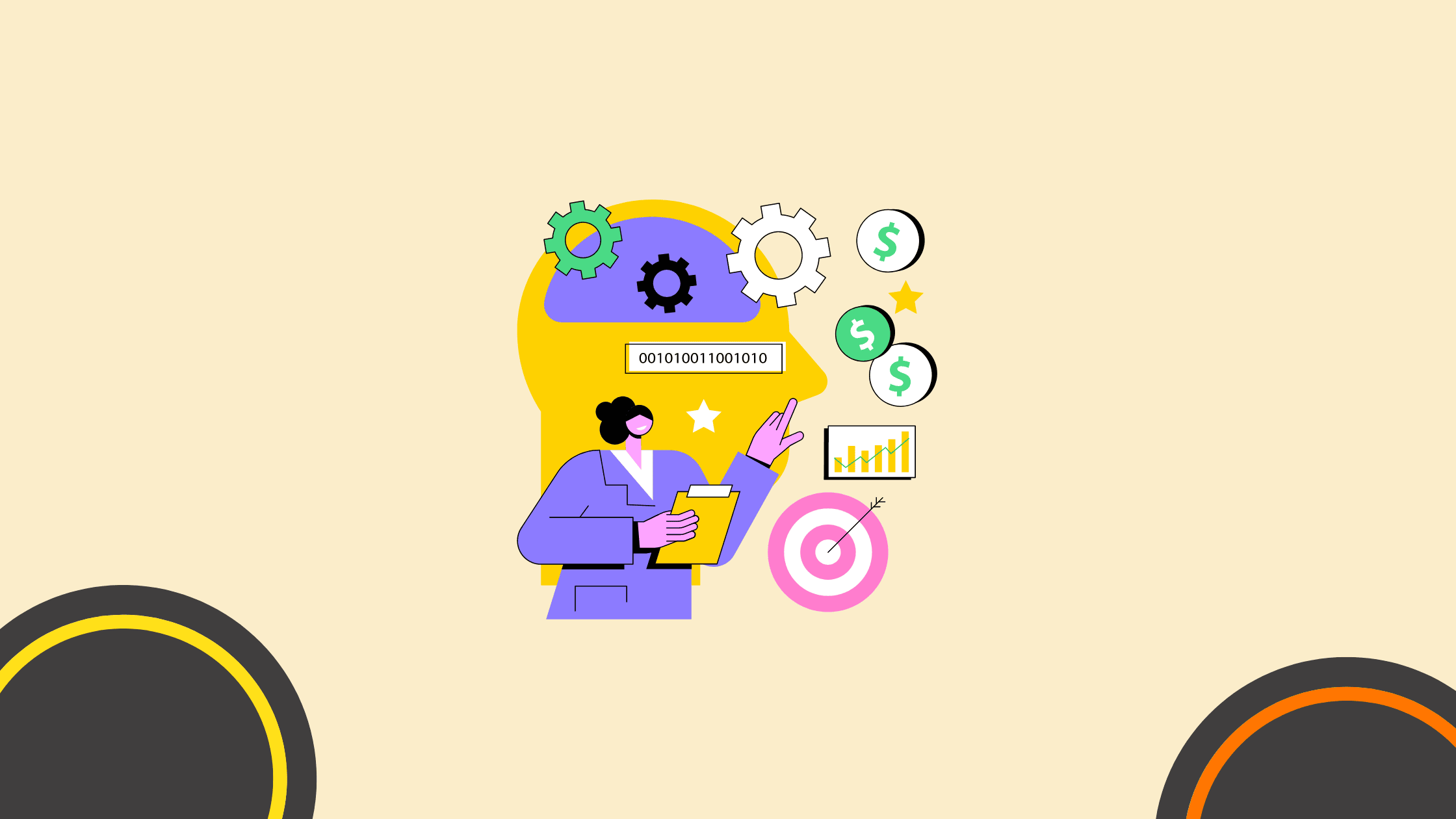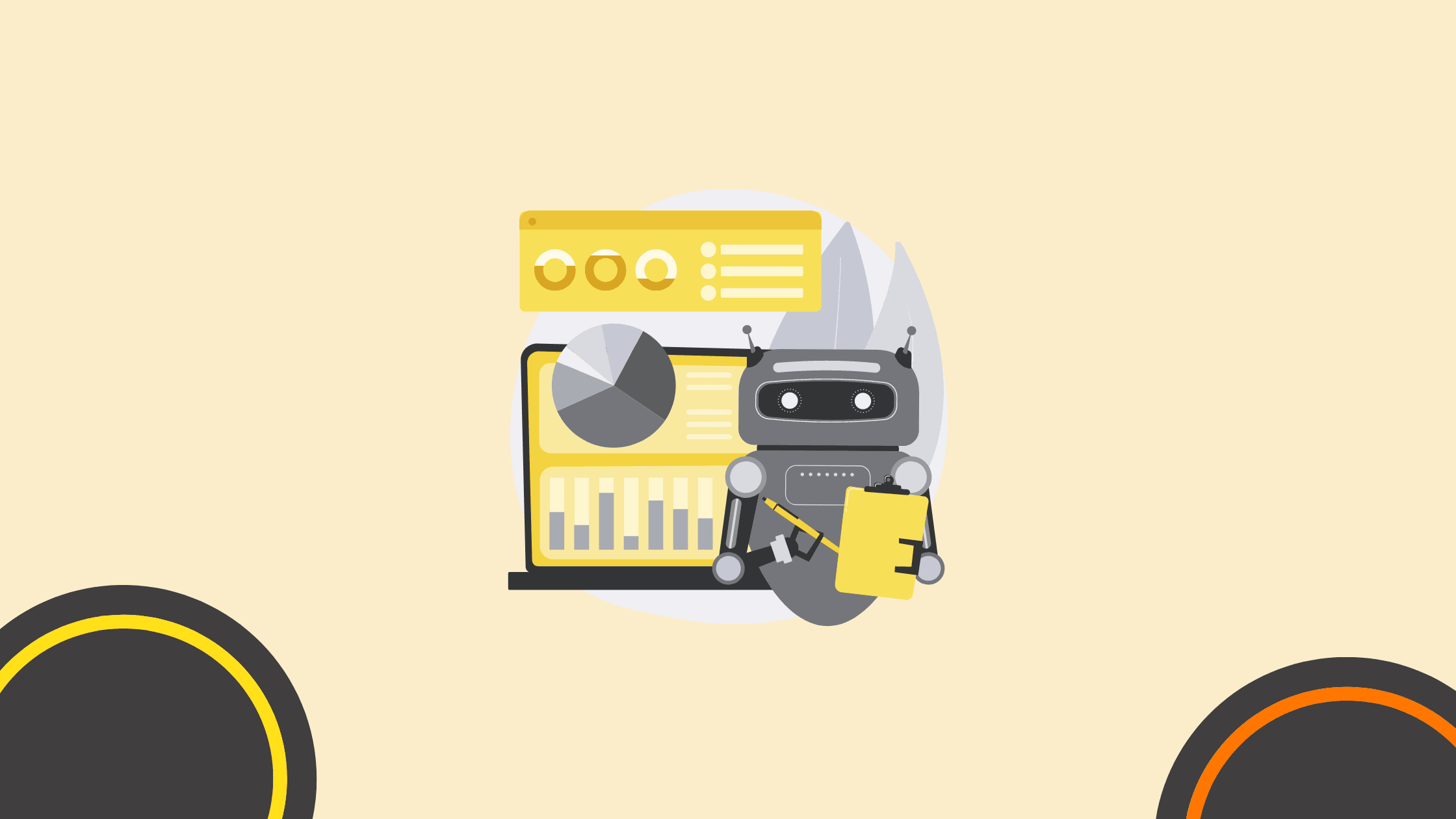Sometimes, you can’t help but wonder if we humans are up against our very own creation, Artificial Intelligence! Or perhaps, we’re just being overreactive to the overwhelming impact it has on our lives. Either way, we are witnessing an avalanche of technological advancements and AI is becoming a force to be reckoned with.
Over time, industries especially marketing and advertising agencies have undergone major evolutions due to the unceasing transformation of technology and changing consumer desires.
To survive the ever-competitive business landscape, 91.5% of top businesses now have investments in AI to manage their operations, bolster customer experiences and ultimately impact the ROI of their marketing campaigns.
And now, with the AI market expanding at a CAGR of 38.1% between 2022 to 2030, AI could fundamentally transform all marketing tactics and become the best bet for any marketer looking to make their stand against rivals in the global market.
So, what significant impact has AI had on the marketing landscape? Can it withstand the test of time and what surprises await us in the nearest future? Well, you’re about to find out.
In this article
How impactful is AI in marketing?

The advent of AI tech to the marketing space was so overwhelming that even the most underrated and underutilized digital marketing strategy, SMS marketing received a massive and game-changing boost.
What seemed to be lurking in the background is now taking center stage and more people than ever are beginning to learn more about SMS marketing to up their overall marketing tactics. It’s the single most direct and immediate channel to enhance customer engagement and it boasts a read rate of up to 97%.
Within the dynamic shift in marketing tactics brought about by AI, SMS marketing has evolved with major contributions from message optimization tools. These tools have revolutionized how e-commerce businesses can automate and enhance their text communication with customers. The ability to personalize messages, create efficient targeting strategies, and analyze customer engagement are crucial features offered by these innovations. For in-depth exploration on this topic, check out our article discussing message optimization tools and their significance in driving better customer interaction for online commerce.
For the bigger picture, marketers can now leverage the viability of AI in marketing to
- Automate all manual workflows;
- Make better predictions on customer behavior;
- Analyze customer engagement with better accuracy;
- Develop ads that are targeted toward a specific audience;
- Optimize marketing content and much more.
7 Ways AI is evolving marketing

1. Understanding the needs of customers
Customer satisfaction and loyalty sit at the center of all business goals and strategies and marketers on the other hand are on a constant stride to
- better understand the pain points of their clientele,
- how they interact with their products and
- the overall perception of their brand in the minds of customers.
AI marketing leverages artificial intelligence programs like machine learning and big data to garner customer information and develop insights that allow you to predict a customer’s next move in a bid to enhance the overall customer experience.
With AI technologies leading the way, marketers can create customer profiles to ease the process of segmenting their customer lists into people who are set to make purchases and those who are still in doubt about making a purchase or not.
The significance of this is that it gives marketers a detailed analysis of their progress and how they can systematically channel their resources to attract and retain more customers.
2. Identify and keep up with the ever-changing marketing trend
The marketing landscape changes spontaneously, making products and services susceptible to obsolescence. An outmoded product translates to fewer customers and a decline in ROI generated.
AI-powered technologies are a masterpiece when it comes to analyzing huge chunks of data to develop actionable insights. Its versatility to blend with the marketing landscape gives you a head start in identifying the sudden tilts and upcoming trends through concurrent discussions or curating events for customers.
Another interesting fact about AI is that it exploits the insights gained from data analysis to provide you with different tactics to
3. Predict Returns of Future Campaigns
Does it really forecast events? Well, AI is an exceptional invention and its compact set of functionalities makes it quite intriguing.
Imagine what you stand to achieve if you could see what is set to happen in the future. That sets you one step ahead of time!
While AI doesn’t categorically show you what the future is, it has predictive analytics which allows it to garner data about past deals by analyzing data from meetings, phone conversations, emails, and what have you. It then establishes a link between the data and the anticipated sales of your present and future campaigns.
Asides from sales prediction, AI eliminates the risk of human errors from your data analysis while giving you workable insights about areas begging for improvements in your marketing strategies.
4. Chatbots Enhance Customer’s Experience

Talk of a disruptive piece of AI technology that is becoming an integral part of every business strategy, you can place your bet on chatbots. One of the most intriguing features of this hi-tech software is the personal touch it gives to communication.
- Chatbots communicate naturally and in the most effective manner with customers while offering them an all-in-one interactive customer service experience.
- Chatbots are commonly used by websites to answer FAQs and they boast a satisfaction rate of about 90%, 2% greater than live chats with humans.
So, are we humans losing our stand against our inventions?
It might interest you to know that top dogs like Facebook have about 300,000 active bots in operation which guarantees a 24/7 response to customer queries. That’s how viable chatbots can be to your marketing strategies.
And with the constant evolution of AI, you never can tell if chatbots will take the frontlines in engaging prospects and nurturing your email list alike.
5. Automated Content Creation
AI is leaving no stone unturned and content marketing isn’t left out of its revolution. It has the ability to influence human reasoning to create hyper-personalized content. And how does that work out?
AI works on the principle of preset algorithms which allows it to carry out analysis on customer data, trending topics and other crucial details that align with the interest of the target audience. By leveraging the viability of AI, marketers can easily
Interestingly, AI-generated content can be altered to meet the specific needs of different social media platforms and audiences in a bid to boost customer engagement and increase returns on investments.
6. Identifying and Preventing Fraudulent Transactions
We all know the drill! For years, cyber crimes have plagued e-commerce businesses and many marketing agencies have been a victim of fraudulent activities one way or the other but thanks to the advent of AI, the narrative has changed abruptly.
AI technologies are designed to identify and prevent cyber criminals from carrying out malicious activities, protecting both businesses and customers alike. It uses different tactics which may include “monitoring” to keep a close tab on unusual transactional patterns and fake IP addresses.
Additionally, AI systems can give you real-time updates on the exact location where a fraudulent transaction is taking place coupled with the actual time of events.
7. Voice Search Optimization
Finally, We can all attest to the viability of optimizing content for voice search and how significant it is in meeting customer needs. Even now, more people than ever are adopting the use of voice assistants to carry out everyday activities and search for information.
A typical voice assistant software like Google Assistant combines AI and machine learning to recognize our voices thereby giving marketers the advantage of creating content that allows them to connect with their clientele via these unfolding channels.
With AI voice assistants,
- Marketers can now worry less about customer language barriers since it integrates translation services.
- Marketers can automate routine activities and free up more time that can be utilized for other business operations.
- Clients with visual impairment can get appropriate customer service and employees with the same defect can carry out their tasks without any hindrances.
The Future of AI in Marketing

THE BOTS ARE COMING! Tides are changing and technologies continue to advance. There is every tendency that human activities will get reduced in the marketing landscape sooner or later due to the versatility and evolution of AI.
While human activities can’t be completely eliminated, AI might eventually form the basis of all marketing strategies. Its ability to seamlessly automate all workflows is enough of a reason to reckon with it.
While we may not have the full potential of AI yet, we know for sure what awaits us in the future. The sooner we accept it, the better we get at collaborating with it to achieve our business goals.
FAQ
How is AI evolving marketing strategies?
AI is evolving marketing by enabling hyper-personalization, predictive analytics, more efficient data processing, and automating routine tasks, leading to more effective and targeted marketing strategies.
What role does AI play in personalizing marketing campaigns?
AI analyzes customer data to tailor marketing messages and offers to individual preferences, improving engagement rates and customer experiences. An AI Text to Image Generator help with creating tailored images in minutes.
How does AI improve predictive analytics in marketing?
AI enhances predictive analytics by processing large data sets to forecast trends, customer behaviors, and potential market changes, helping marketers to plan more effectively.
Can AI automate content creation in marketing?
Yes, AI can automate aspects of content creation such as generating basic written content, optimizing headlines, and personalizing content for different segments.
What impact does AI have on customer segmentation?
AI improves customer segmentation by analyzing detailed data points, allowing marketers to create highly specific segments for more targeted campaigns.
How is AI used in marketing for real-time decision-making?
AI tools can process data in real-time, providing instant insights that help marketers make quick, informed decisions about their strategies and campaigns.
What are the benefits of AI-driven chatbots in marketing?
AI-driven chatbots enhance customer service and engagement by providing immediate responses, resolving queries, and collecting valuable customer feedback and data.
How does AI contribute to SEO and content marketing?
AI aids SEO and content marketing by analyzing keywords, optimizing content for search engines, and creating content strategies based on user behavior and preferences.
Can AI improve the efficiency of marketing campaigns?
AI can significantly increase the efficiency of marketing campaigns by automating tasks, optimizing ad spend, and providing rapid analysis for continuous improvement.
What are the challenges of integrating AI into marketing strategies?
Challenges include ensuring data privacy, managing the complexity of AI systems, keeping up with rapid technological advancements, and aligning AI initiatives with overall marketing objectives.
Author bio
 Rilwan Kazeem is a freelance content writer, explorer, and reader. He writes marketing, and HR-related articles, how-to guides, and product descriptions. Rilwan’s writing has been featured in Leaderonomics, Engagedly, and Newsbreak—where he unraveled “10 simple steps to launch an online business in 2023”, among others. He is the recipient of the 2015 Golden-Ink essay contest award at the Ladoke Akintola University of Technology.
Rilwan Kazeem is a freelance content writer, explorer, and reader. He writes marketing, and HR-related articles, how-to guides, and product descriptions. Rilwan’s writing has been featured in Leaderonomics, Engagedly, and Newsbreak—where he unraveled “10 simple steps to launch an online business in 2023”, among others. He is the recipient of the 2015 Golden-Ink essay contest award at the Ladoke Akintola University of Technology.
